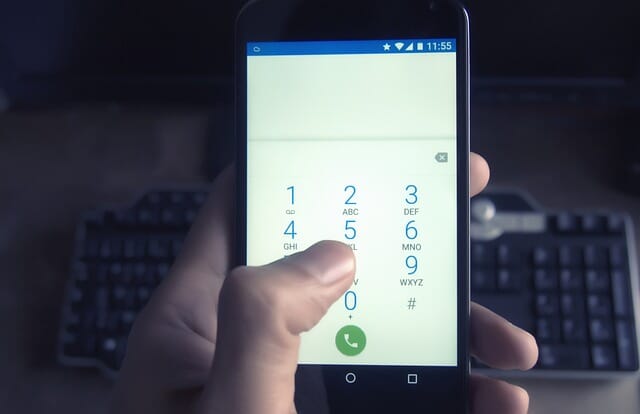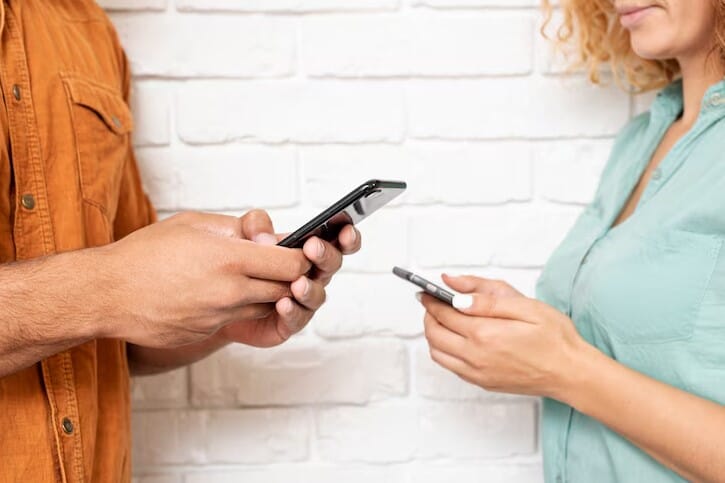
Your Guide to Validating Unknown Phone Numbers for Peace of Mind
Introduction
In a world where communication is just a touch away, the importance of knowing who’s on the other end of the line cannot be overstated. Whether it's an unfamiliar number calling you in the middle of dinner or a message from an unknown contact, many people are left wondering: "Should I answer?" Fear not! This guide is dedicated to helping you identify a phone number with ease and confidence.
This article, Your Guide to Validating Unknown Phone Numbers for Peace of Mind, will delve into various methods for phone number validation and verification. We’ll explore tools such as caller ID, phone number checkers, and much more. By the end, you’ll be equipped with the knowledge necessary to take control of your communications and make informed decisions about which calls to answer.
Understanding Phone Number Validation
What Is Phone Number Validation?
Phone number validation refers to the process of verifying that a phone number is legitimate and correctly formatted. This includes checking whether it adheres to local dialing patterns and whether it corresponds to an active line.
Why Is Phone Number Validation Important?
Validating phone numbers is crucial in today’s environment where scams and fraudulent calls are rampant. With proper validation, you’re less likely to fall victim to phishing attempts or unwanted solicitations.
How Does Phone Number Validation Work?
The process typically involves checking the structure of the phone number against established norms (like country codes) and cross-referencing with databases that maintain records of active numbers.
Identifying Unknown Numbers: The Basics
Understanding Caller ID
Caller ID is a feature that displays information about incoming calls. While this can provide some peace of mind by showing a name or location, it's not foolproof. Many scammers use spoofing technology to mask their actual identity.
Using Phone Number Checkers
Phone number checkers are online tools that help you identify who owns a particular phone number. They often provide details such as the owner's name, address, and service provider.
Benefits of Using Phone Number Checkers:
- Anonymity: You can check numbers without revealing your identity.
- Speed: Find out information in seconds.
- Accuracy: Most reputable services provide reliable data.
Advanced Techniques in Phone Number Validation
The Role of Phone Verification Services
Phone verification services take validation a step further by confirming whether a number is active through real-time checks. These services Missed call lookup often send a text or call to confirm ownership.
API Integrations for Businesses
For businesses looking to validate customer numbers at scale, incorporating APIs into their systems can streamline operations. This allows companies to automatically verify numbers during customer sign-up processes.
Legal Considerations in Phone Validation
Understanding Privacy Laws
When validating unknown phone numbers, it’s essential to remain compliant with privacy laws such as GDPR or CCPA. Always ensure that you’re obtaining information legally and ethically.
When Is It Illegal To Validate A Phone Number?
While validating numbers for personal use is generally acceptable, using this information for harassment Online identity verification or unsolicited marketing is illegal in many jurisdictions.
Common Scenarios Requiring Number Validation
Receiving Calls from Telemarketers
Telemarketers often use automated systems that call numerous numbers simultaneously. Knowing how to identify these calls can save you time and frustration.
Handling Robocalls Effectively
Robocalls can be annoying; however, understanding how they operate can help you distinguish between legitimate calls and scams. Utilizing caller ID apps can assist in filtering these calls effectively.
Tips for Avoiding Scam Calls
Be Skeptical About Unknown Numbers
If you receive a call from an unknown number claiming to be from your bank or another trusted entity, hang up and call back using verified contact information.
Use Call Blocking Features on Your Device
Most smartphones come equipped with blocking features that allow users to prevent specific numbers from reaching them again.
Your Guide to Validating Unknown Phone Numbers for Peace of Mind
When receiving an unknown call or message, remember these steps:
By following these guidelines outlined in Your Guide to Validating Unknown Phone Numbers for Peace of Mind, you'll be better prepared to handle any situation involving unknown contacts confidently.
Frequently Asked Questions (FAQs)
1. How can I identify an unknown phone number?
You can use online tools like phone number checkers or caller ID features on your smartphone.
2. What should I do if I receive multiple spam calls from different numbers?
Consider enabling call blocking features on your device or reporting the numbers directly through your mobile carrier's app.
3. Are there any free resources available for validating unknown numbers?
Yes! Websites like Truecaller offer free services that help users identify unknown callers based on community-driven data.
4. Can I trust all caller IDs?
Not always—some scammers employ techniques like spoofing that allow them to disguise their true identity when calling.

5. What steps should I take if I suspect I've received a scam call?
Hang up immediately without providing any personal information and report the incident through appropriate channels like FTC.gov in the U.S.
6. Is it legal to use phone verification services?
Yes, as long as they comply with local privacy regulations regarding data usage and consent requirements.
Conclusion
In conclusion, navigating through the maze of unknown phone numbers may seem daunting at first glance; however, with the right tools and approaches outlined in Your Guide to Validating Unknown Phone Numbers for Peace of Mind, you're now armed with knowledge! From understanding how caller ID works to employing advanced methods like verification services—every bit helps ensure your communication remains secure while minimizing disruptions from unwanted callers.
Take control over your interactions. Remember that being informed leads not only Spam call identification toward safe conversations but also towards peace of mind amidst today's fast-paced digital landscape!